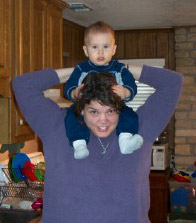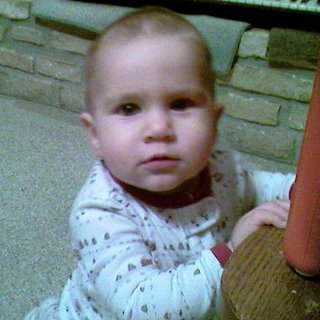 My friend Jordan always tells me about the great stuff going on locally for students at Metro State. Today she told me I needed to come check out a one-woman show by Ingrid Rivera, called "Lágrimas de Cocodrilo" or "Crocodile Tears."
My friend Jordan always tells me about the great stuff going on locally for students at Metro State. Today she told me I needed to come check out a one-woman show by Ingrid Rivera, called "Lágrimas de Cocodrilo" or "Crocodile Tears."How does a single mother survive the lingering nightmare of childhood sexual abuse and find inner peace? Lágrimas de Cocodrilo is spoken-word activist Ingrid Rivera's tale of survival delivered in raw, vivid poetic monologues.
Journey into one woman's struggle with female-on-female childhood sexual abuse, lesbianism and raising a female child in the midst of recovery.
What a privilege to see this raw, emotional, moving and healing show.
It's hard enough for female survivors to talk about their abuse experiences, but when it's female-on-female there's a whole additional layer of stigma. Add to that the stigma of talking about this kind of abuse when you're a same-gender-loving female, and you've got one hell of a brave woman.
I got to talk briefly with Ingrid after the show, where I asked her if her sexual abuse history was ever used against her while she was also coming to terms with her sexuality. She said she'd been very lucky that hadn't been the case, but admitted that unfortunately it is often the case for many people who have experienced abuse by someone of the same gender.
She said, "You know, when a straight woman is in therapy because of being abused by a man, they don't question if she's straight because of the abuse, do they?" and of course, the answer is no. I have several male friends who have been abused by men and are straight. Most of the women I know who have been abused in childhood are straight. It infuriates me sometimes that straight people don't have to work through their abuse issues while also having to answer questions about their orientation and if the abuse "caused it."
Of course, in the convoluted-thinking ex-gay circles, if women are abused by men, then it's natural that they become lesbian (because the woman don't want to recreate the abuse situation and want to flee men), but if men in the same ex-gay group are abused by men, then that explains why they ended up gay (because naturally they'd be attracted to, and seek to recreate that abuse situation). Huh? Does anyone else see the craziness in that?
Someone else asked Ingrid if she felt supported by the Queer community, and she expressed that she hadn't gotten the support she'd wished for. These are some hard topics for the gay community. Both the female-on-female abuse (which seems too much like the perpetrator thing we get accused of), and the trouble parenting a daughter while in recovery for abuse (which manifests often in trying to overprotect the child from abuse, or giving unhealthy messages about the dangers inherent in sex and sexuality, or in a lack of ability by the mother to deal with her daughter's sexuality; not in abuse of the child) are tough topics to deal with, sure. It's hard being part of a group that people think are dangerous to kids. So we want to bend over backwards to not have any association with anything like that. And we're a group of people that everyone thinks must have been sexually abused if we're gay. I get it, but I don't have to like it.
I just feel like we can do better than this. As a community, we need to start addressing the tough stuff, and stop being afraid of what "they" say or think. Yeah, there's going to be people who will always say that anyone who is gay was sexually abused. There will always be those who think sexual abuse of children has to do with sexuality/sexual orientation instead of power. There will always be those who will discount my story because of the sexual abuse piece of it. There will always be someone ready and willing to use our stories against us.
In addition to that, those of us who did experience childhood abuse and also had the misfortune of going through ex-gay ministries may always struggle with the association of our abuse with our orientation (read Peterson's great post on "How Sexual Abuse Made Me Ex-Gay" for a good exploration about why those of us who've survived abuse seem to gravitate towards ex-gay programs).
It's tough stuff. But it's no excuse for burying our heads in the sand and not supporting our brothers and sisters who are courageous enough to talk about this stuff. I hope that Ingrid Rivera continues to tell her story and bring healing to herself and many others in the process. I hope that we as a community can start embracing each other just a little more. All we can do is keep telling our truths, and bringing our stories into the light.









